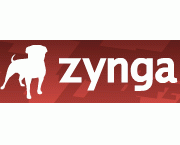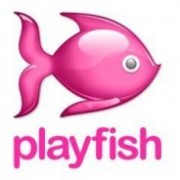 |
 |
 |
|
| CrunchBase Profile | Zynga | Playfish | Playdom |
| Location: | San Francisco, CA | London, UK | Mountain View, CA |
| Money Raised: | $39M | $21 Million | $0 |
| Revenue: | Estimated $200M | Estimated $75M | Estimated $60M |
| Rumors: | Strong 2010 IPO candidate | Possible acquisition talks with EA | Raising Venture Capital |
| Key Apps: | Facebook: Farmville-61M Mafia Wars-25.8M Yoville-19.8M Texas Hold Em’ Poker-18.3M |
Facebook: Pet Society- 20.5M Restaurant City-17.3M Country Story- 8M 135 million total installs for all games |
Myspace: Mobsters -14M Bumper Stickers-11.7M Own Your Friends-10.1M; Facebook: Sorority Life-7.1M Mobsters 2-3.5M Poker Palace- 1.5M |
So much for the first generation of big Facebook/MySpace social application startups. Slide and RockYou both got huge valuations in venture rounds. But a new generation of application developers has taken center stage and are racking up big revenues and their own eye popping valuations: Zynga, Playfish and Playdom.
All three own popular social games on Facebook and MySpace. Zynga’s Farmville has 61 million monthly users. Playfish’s Pet Society has 21 million monthly users on Facebook. And Playdom has 16+ million monthly users of Mobsters on MySpace and Facebook Combined.
All three companies are getting a ton of press and investor attention. Zynga wants to go public next year. Playfish probably already got bought by EA for $400 million or more. And Playdom probably raised an unannounced big chunk of venture capital over the summer.
These three companies may be generating as much as $300 million annually on sales of virtual goods. Need a shotgun to do that next job on Mobsters? No problem. Pay with a credit card, paypal, or your mobile phone and it’s all yours. And people are obviously very willing to buy these virtual goods. Nothing new there.
The goal of all of these games is to get to a higher level, and generally have more fun growing things or killing things faster than your friends. Get addicted to the free version, then start spending to move things along more quickly. Once people are committed, it’s easy to get them to pay. You can read all about it on Business Week.
Except Business Week didn’t mention the dark side of the business at all.
All three companies are willing to give game currency in exchange for offers. Sign up for Netflix. Buy a ringtone subscription. Or energy drinks. Sign up for a credit card. Get car insurance. Take an IQ survey that requires a $9.99/month mobile subscription to see the results. We even found one for arthritis medication. Here’s how it all looks. One executive we spoke with says that 70% of total revenue from these applications may come in from lead generation, not direct payments. Netflix alone will pay $30-$40 for a free trial (requires credit card).
Three companies control most of these lead generation offers: TrialPay (appears to have the most legitimate offers), Offerpal and SuperRewards.
There’s nothing wrong with basing a business off of lead generation, although some of the offers are pretty sketchy (long term credit card or mobile subscriptions for little or no value). And the FTC does tend to take a swipe at them periodically. But the bigger problem is that advertisers may not be getting much for their payouts. As the higher quality advertisers bail, pressure to add the scam artists increases.
The cycle of all of these games is pretty standard. Get new users playing for free, give them incentives to message all their friends to signup, hit them hard for cash or lead generation for revenue, and move them up the levels. Rinse. Repeat.